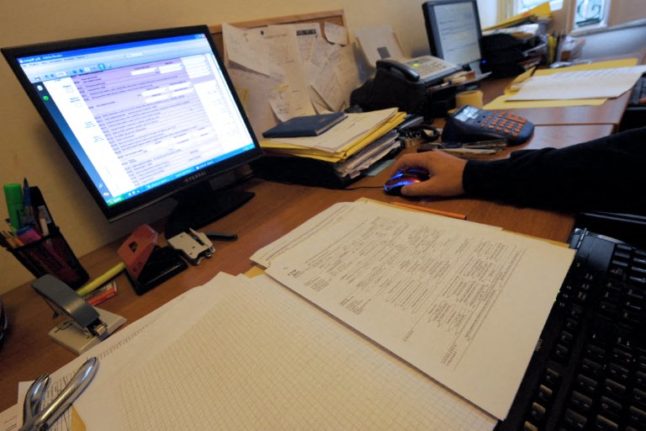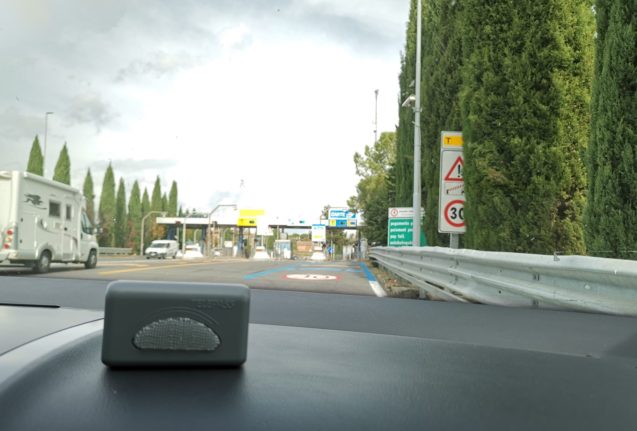The Italian tax system has a reputation for being particularly difficult to navigate. Don’t just take our word for it: the prime minister herself recently described her country’s tax rules as “illogical and vexatious… and quite useless too.”
But as you face the upcoming tax season you may be wondering: just how hard it can really be to manage your Italian tax affairs yourself? After all, this isn’t the most straightforward or pleasant task in any country.
READ ALSO: When are the deadlines for filing your Italian income tax return?
For Italy’s foreign residents, it’s frequently recommended that you seek help from an accountant or another tax professional, not least because the language barrier increases the risk of potentially costly mistakes.
The complexity of the system also means Italians themselves often seek professional advice on tax issues, particularly if their tax situation is at all complicated.
While the Italian inland revenue agency (Agenzie delle Entrate) has taken steps to simplify the process of filing a tax return in recent years, and even provides some Italian tax information in English, the tax forms themselves are not available in English and there’s a lot to understand about the rules.
When filing a tax return, getting professional advice can be particularly important if you’re making changes to the pre-filled sections of the 730 form, or if you’re self-employed and need to use the redditi PF form.
Find out more about these forms and the deadlines for filing them in 2024 here.
We asked readers whether they would recommend using an accountant over filing taxes yourself, and the majority agreed that, for them, professional help was worth the cost.
“There’s not a chance I would file my own taxes in Italy,” said self-employed British reader Greg in Lombardy. “The rules keep changing, it becomes very time-consuming.”
He pointed out that back in the UK most people do not need to file an annual income tax return, and said that as a result he thinks some British nationals in Italy tend to “underestimate” the difficulty and “think they can go the DIY route.”
“I see time and again people asking for advice [about taxes] on expat groups,” he said, adding that there’s a lot of “wrong information” being given in response.
“Not worth it. Just pay an accountant,” he advises.
READ ALSO: What is an Italian commercialista and do you really need one?
Janine in Tuscany said her commercialista (accountant) has saved her money. She has friends who have “tried to apply for some of the [tax] bonuses themselves but never heard anything back,” while her claims submitted by a professional were processed quickly.
“They know the ins and outs of the system and can just get things done,” she said.
Meanwhile, in a recent article on filing US and Italian taxes, some American readers told us they needed not one but two accountants – one in each country.
“Get professional tax advice for your specific situation. Know that double taxation is real, despite the existence of tax treaties,” advised one anonymous American reader who said they pay for professional help in order to avoid being audited in Italy.
READ ALSO: Reader question: Do US nationals in Italy have to pay taxes twice?
Others told us that, while they needed help with their American taxes, they found they were able to handle their Italian tax return themselves using software such as TurboTax.
Those who have hired a tax professional also stressed the importance of choosing someone with experience of handling international tax affairs.
“You will probably end up paying ‘expat rates’, especially if you need someone who speaks English,” said reader Nancy, from the US. “Make sure you get recommendations, make sure they understand your situation.”
If you have concerns about filing your own taxes in Italy, you don’t always have to pay for help.
Italy has a national network of tax assistance centres (Centro Assistenza Fiscale, or CAF) which provide free advice on tax matters and can also help you complete and file your tax return, submit claims for financial assistance, and more. Find your nearest office here – though be aware that not all staff will speak English, and they get very busy ahead of tax season.
If you’d prefer to look into hiring a tax professional, find out more about what exactly a commercialista can help with and how to find one in this article.
For general information on the tax requirements you may face, consult the tax agency (Agenzie delle Entrate). Find your nearest office here.
Please note that The Local is unable to advise on individual cases. Find more information on the Italian tax agency’s website (in English).



 Please whitelist us to continue reading.
Please whitelist us to continue reading.
In a word: Yes.
Wait. There’s an Italian version of TurboTax?
It is all very confusing. My latest admit from my commercialista was I didn’t need to file as I am retired and hsve no income that has not been already taxed ?